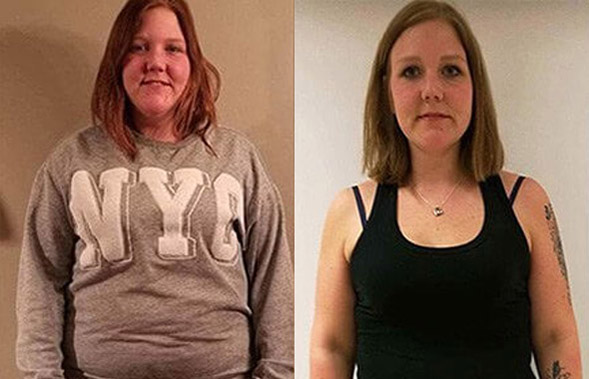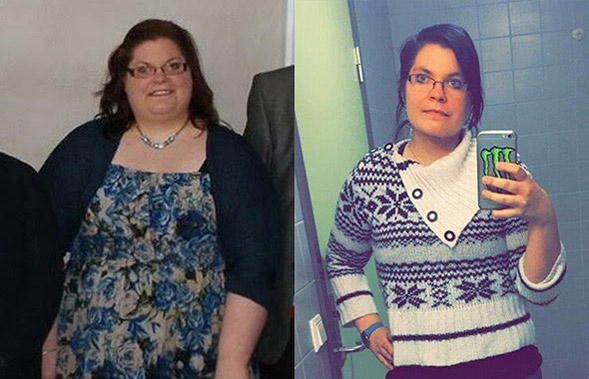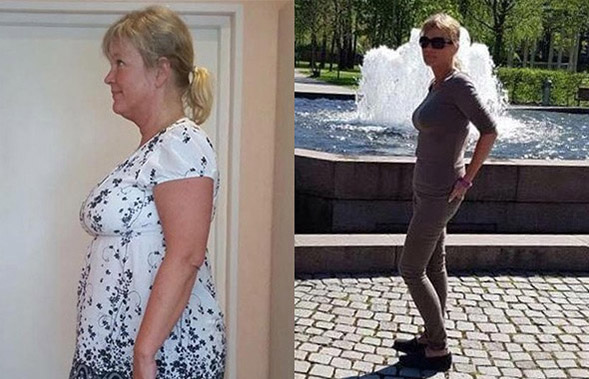Book Free Consultation
| Gastric Balloon | BMI 27+ |
| Gastric Sleeve | BMI 30+ |
| Gastric Bypass | BMI 35+ |
Choose the procedure that suits you best
Weight: Kg | Height: cm |
10 Reasons to choose us
BMI Range
Enter your body profile details to calculate the result.
Table of contents [hide]
- Everything You Should Know About Sleeve Gastrectomy
- What is Sleeve Gastrectomy and How Does It Work?
- Benefits
- Associated Risks
- Cosmetic Considerations
- Sleeve Gastrectomy Cost Norway Vs Latvia
- World Class Gastrectomy Expertise
- About Riga
- The Procedure
- Who Should Consider This Type of Surgery?
- Average Weight Loss with Vertical Sleeve Gastrectomy
- Best Case Scenario
- Sleeve Gastrectomy Before and After: The Recovery Process
- Physical Activity
- FAQs
Everything You Should Know About Sleeve Gastrectomy
Sleeve gastrectomy, more commonly known as gastric sleeve surgery or GSS, evolved from a number of earlier procedures and is today at the forefront of anti-obesity surgical treatments. Fortunately the success rate for this surgery is excellent with less than 5% of patients regaining even a small portion of the weight they lost in the wake of their surgery. Still, people have questions about just what is sleeve gastrectomy.
What is Sleeve Gastrectomy and How Does It Work?
During GSS the surgeon removes approximately 75-80% of the patient’s stomach. This drastic change is made to the digestive system in order to facilitate weight loss in the patient who has been unsuccessful at losing weight by other means. By reducing the size of the stomach the amount a person can eat at any one time is also reduced as is the absorption of nutrients. In addition food moves faster through the drastically smaller stomach and there is a substantial reduction in the number of gut hormones released, which means you feel full for longer periods and won’t typically be tempted to snack between meals. In more than 95% of all cases the patient loses virtually all of their excess weight and is able to keep it off over the long term, essentially providing a new lease on life for the formerly obese person.
Gastric Sleeve Surgery Package 58900,-NOK
What’s included in the package – read here.
Benefits
People sometimes get confused and think there are several sleeve gastrectomy types. There aren’t. There are 3 types of gastrectomy surgery but only one is the “sleeve” type – GSS – and that’s what we are focusing on here. The benefits of GSS are many and include:
- The ability to manage weight related conditions – As we mentioned at the outset it is the other conditions that arise as a result of obesity that pose the most serious risk to the patient. Unless the obese person is able to reduce their weight by a substantial degree those weight related conditions could ultimately prove fatal. Many obese persons suffer from hypertension, respiratory conditions, type 2 diabetes and heart problems. In addition every 100 pounds of excess weight a person carries puts an estimated 400 pounds of additional pressure on the hip, knee and ankle joints when walking. As a result obese persons are commonly faced with serious mobility issues as well which only serves to make matters worse. In the aftermath of GSS patients typically gain a measure of control over these serious conditions. Those afflicted with Type 2 diabetes often see a stabilization of and return to normal blood sugar levels. Those who had been contemplating knee or hip replacement are often able to find effective treatments that won’t require replacing these vital joints. The threat of heart attacks is also reduced, respiratory conditions typically ease and, because mobility is restored, the patient is able to exercise and achieve a far higher degree of overall health.
- Higher quality of life – Obese individuals typically lead fairly sedentary lifestyles and often find themselves isolated from the kind of normal social interactions and activities the rest of us take for granted. These activities and interactions help us maintain good physical and mental health and a positive outlook about our life and prospects. Obese individuals by contrast are sidelined by their condition and often wind up suffering from depression. Various studies have shown a direct correlation between significant weight loss and a vastly improved quality of life. The person is no longer denied the ability to participate in normal healthy activities, spends less time indoors by themselves and, as noted above, is often freed from the odious consequences of conditions that were related to their obesity.
- Greater self-confidence – Obese individuals are often painfully aware of prying eyes and hear the judgmental whispers of those around them. Even the strongest among them is not immune to the negative effects on self-confidence and self-esteem that can result. But the effects on self-confidence are not simply a result of negative social interactions, there is ample evidence that being overweight can increase the amount of the stress-related hormone cortisol in the system and that losing weight has the opposite effect. In addition, depression is typically one of the most common side effects of obesity but numerous clinical studies show that obese individuals who lose significant amounts of weight and keep it off suffer fewer symptoms of depression. Finally, the positive effects on mood and self-confidence that stem from significant weight loss have a cascading effect on the individual’s overall outlook. This enables them to stick more effectively to long term diet and exercise regimens.
- Better quality sleep – One of the little discussed effects of weight loss from GSS is that of improved sleep. Obese individuals often suffer from sleep apnoea, insomnia, interrupted sleep, inconsistent sleep patterns and overall fatigue at all hours of the day. A variety of control studies showed that significant weight loss is able to reduce or eliminate sleep apnoea, allow patients to sleep longer without interruption, reduce instances of insomnia and produce higher levels of awareness and vitality during the day. In general the more weight an obese individual loses the better they will sleep.
Associated Risks
In most cases sleeve gastrectomy complications are less severe than those of other types of intestinal bypass surgery. Any complications that may arise are typically handled with professional ease by the medical team and their support staff. That said, there are still risks involved as there are with any type of major surgery and you should be fully aware of them before deciding whether to undergo this type of procedure. Those risks include:
- Blood clots – Typically occur in 1% or less of patients.
- Sleeve leaking – Occurs with less than 0.5% of patients.
- Infection – Usually treatable with antibiotics, occurs in about 10% of patients.
- Strictures – Occurs in approximately 3% of patients.
- Aversion to food – Rare.
- Oesophageal spasms – Rare.
- Gastroparesis – Rare.
While sleeve gastrectomy side effects are typically uncommon you should not ignore the fact that they may occur and make your decision whether or not to undergo the procedure based on all the facts.
Cosmetic Considerations
The above risks and complications aside for a moment there is one other side effect of GSS that needs to be discussed, and that is sagging skin. A successful gastric sleeve procedure is going to produce significant weight loss (we’ll go into exactly how much in greater detail below). This in turn is going to result in a potentially significant amount of loose or sagging skin. Just how much will depend on how much you weighed prior to surgery, how much weight you lost after surgery, your age and the general overall condition of your skin. Areas where sagging skin can be particularly pronounced include the arms and legs, abdomen and buttocks.
In some cases people decide to live with the excess skin and while that is certainly their right you should be aware that doing so may result in a number of issues related to hygiene and health. For instance; stubborn rashes and even infections can develop in the folds between the skin. This is caused by the combination of moisture build-up and friction. Having a lot of excess skin can also interfere with your natural walking motion and don’t forget that all that skin weighs a considerable amount, so you’re still putting undue stress and strain on your joints.
Because of all this many who undergo GSS follow it up later with plastic surgery to remove the excess skin. You should discuss this option with your doctor who will likely be able to refer you to a qualified cosmetic surgeon experienced in such matters.

Sleeve Gastrectomy Cost Norway Vs Latvia
While costs have a way of fluctuating as of this writing you should expect to pay an average of about 100.000,-NOK for GSS in Norway. It is without a doubt one of the more expensive forms of weight loss surgery but also one of the safest and most effective as well. Keep in mind that the exact price is determined on a case by case basis wherein a variety of factors are considered including the person’s age, weight and overall health. In many cases Norway residents are far better off going abroad for this type of procedure. The chart below, which compares the cost of the procedure in various European capitals, reinforces this notion in black and white terms.
As you can see traveling abroad, especially to Latvia, to have your GSS is the smart thing to do. First, because it only takes about 1 ½ hours to fly from Oslo to Riga so any follow-up that might be necessary is not a problem and second, because Latvia has some of the best medical schools in Northern and Eastern Europe, meaning there is zero loss in quality between Oslo and Riga when it comes to this type of procedure. In fact many of our patients tell us the quality of care at Overvekts Operasjoner Riga is actually superior to what they have received in Norway, where surgery is often performed in a kind mechanistic, impersonal, conveyor belt fashion.
World Class Gastrectomy Expertise
When it comes to GSS no clinic in North Eastern Europe is better qualified than Overvekts Operasjoner Riga. We’re the premier destination for GSS attracting people from every corner of Norway and beyond. Our surgeons are rigorously trained in all the most modern techniques and are among the most experienced anywhere, having performed hundreds of these procedures. Our facility is second to none and features state of the art equipment, spacious, well-appointed rooms and a multilingual staff who will make you feel at home the minute you walk in the door. In addition we’re proud of our low complication rates, access to the latest research and techniques, our extraordinary support staff (including some of the best physiotherapists you’ll find anywhere) and convenient location in central Riga.
About Riga
The Baltics have long been the forgotten piece of the European puzzle and given the many decades they were shunted behind the iron curtain during the Soviet era that is perhaps understandable to a degree. But over the course of the past 25+ years the area, led by cities like Riga, has recaptured the imagination and respect of the international community. Riga today is one of the world’s most technologically advanced cities with a robust digital infrastructure weaving its way through buildings and streets that reflect more than 800 years of history. The city centre has been designated a UNESCO World Heritage Site due to its dazzling combination of native Jugendstil as well as Art Nouveau architectural treasures.
Riga is also the largest city in the Baltics with a metro area in excess of 1 million residents. More than 2.5 million people from all over the world visit Riga every year and that number continues to climb as more people become aware of the city’s many gifts. If you are flying into Riga you’ll find one of the busiest and most modern airports in Northern Europe which handles in excess of 5 million passengers annually; more than Belgrade, Belfast or Liverpool. The city has also played host to a variety of international sporting and cultural events including the Eurovision Song Contest, the IIHF World Ice Hockey Championships, the Women’s World Curling Championships and the 2006 NATO Summit.
In 2014 Riga was designated a European Capital of Culture and the city continues to play host to a number of important EU institutions. Famous Latvians include the acclaimed ballet master Mikhail Baryshnikov, one of the acknowledged titans of modern art Mark Rothko and former World Chess Champion Mikhail Tal who is still considered one of the most influential chess masters of all time.
In short the days when Riga, and Latvia in general, were afterthoughts in the European conversation have long since passed into history and today there is no more convenient, affordable, reliable place for Norwegian residents to go to have their gastric sleeve procedure.
The Procedure
As mentioned previously a gastric sleeve procedure is one during which the surgeon removes 75-80% of the patient’s stomach. In some cases they may even remove a bit more. The surgery itself is typically done laparoscopically and the sleeve gastrectomy steps are as follows:
- Rather than one enormous incision, the surgeon will typically make several small, strategically placed incisions through which a viewing tube with a tiny camera and light along with surgical instruments will be inserted. This type of surgery is preferred because it usually leads to much shorter recovery times and there are fewer opportunities for complications, including infection, than there are with one substantial wound.
- Once the surgeon is comfortable that he has the access and visibility necessary to go ahead the abdomen is filled with CO2 to lift the wall of the stomach away from other organs. The liver is given particular attention as its natural placement puts it over parts of both the oesophagus and the stomach. Once it is repositioned out of harm’s way work on the stomach can commence.
- The stomach is then separated from the surrounding tissue so that the surgeon has a clear view of the space behind the stomach as well. This is important to avoid damage to the spleen and pancreas. Once the stomach is sufficiently isolated the surgeon proceeds to the next step.
- After checking for a hiatal hernia and confirming none is present the surgeon then elevates the “greater curve” of the stomach, measures off the area to be removed and cuts away the unwanted stomach mass, leaving a greatly reduced stomach that somewhat resembles a banana in shape and size.
- The length of the cut is then stapled shut and in most cases the staple line is covered with an additional material intended to minimize the risk of leaks and/or excessive bleeding. Extreme care is taken to avoid narrowing between the horizontal and vertical portions of the stomach near the incisura angularis. The entire line of staples is then thoroughly inspected for malfunctioning or incorrectly placed staples and leaks.
- Finally, once the surgeon is satisfied everything is copacetic the portion of the stomach that was cut away is extracted and the incisions closed with sutures.
Vertical sleeve gastrectomy is performed under general anaesthesia and typically takes about 1 hour to complete.
Who Should Consider This Type of Surgery?
There are many different types of weight loss surgery and not all of them are right for everyone seeking this type of help. GSS is considered one of the safest and most effective methods of weight loss surgery and is best suited to individuals who:
- Have had limited or no success losing weight through more conventional means – This type of surgery is never a first option. It should only be undertaken when all other non-surgical methods of weight loss have been exhausted. If that is the case with you, then you may be a candidate for GSS.
- May have difficulty making regular follow up visits – Some types of weight loss surgery require frequent follow up examinations: lap band surgery being a good example. GSS however usually does not require the patient make numerous follow up visits and in fact your surgeon may determine that, barring complications, you won’t need more than a single 6 month and a single 1 year follow up.
- Are wary of the potential negative long term effects of bypass surgery – Intestinal bypass surgery carries with it the risk of several potential side effects that typically make it a riskier type of surgery. Those potential side effects include intestinal obstructions, anaemia and vitamin/protein deficiencies.
- Are unable to undergo other types of weight loss surgery – Sometimes a condition like Crohn’s disease forces a person to choose between sleeve gastrectomy vs gastric bypass. Those people will often times respond much better to GSS.
While there may be other considerations that potentially make laparoscopic sleeve gastrectomy inadvisable anyone who is significantly overweight and meets the other criteria spelled out above will be a candidate for this type of surgery. When you choose to have your surgery at Overvekts Operasjoner Riga you will be sent a comprehensive questionnaire to fill in and return to us. The questionnaire will then be reviewed by one of our surgeons and should they find everything in order you will be invited to schedule a date for the procedure. Before the day of the surgery you will be interviewed and examined at the clinic to ensure you are in the good health and otherwise ready to undergo the procedure.
Average Weight Loss with Vertical Sleeve Gastrectomy
Quite a number of patients are concerned that they will wind up regaining the weight they lost in the aftermath of sleeve gastrectomy surgery. They have heard horror stories from people who have undergone lap band surgery and fear the worst. Their fears however, are completely unwarranted. The drastically reduced size of the stomach makes it virtually impossible to consume enough food to return to your former weight. It’s no more complicated than that. If you want to insure that you don’t gain back even a few pounds of your former weight it will be important that you follow the dietary and exercise advice you’ll receive from the medical team.
That said patients still have questions about sleeve gastrectomy results including how much weight they are likely to lose as a result of this surgery. The fact is the exact amount will vary from person to person and will depend on how heavy you were before surgery and what your target weight will be after surgery as well as other factors. The most important thing is to have realistic expectations as to how much you will lose, expectations that are not established until you have undergone your face to face preoperative screening at the clinic.
Best Case Scenario
On average even if a person is not fastidious in their adherence to the advice given by the medical team they can still expect to lose something in the neighbourhood of 60% of their excess body fat. If, however, you are studious in following the dietary advice of your medical team, you have changed or abandoned old habits and you are exercising on a regular basis it is fair to assume you will lose at least 70-80% and sometimes more of your excess weight as a result of this surgery. So both ultimate weight loss numbers and recovery time after sleeve gastrectomy are a matter of not just undergoing surgery, but making necessary lifestyle changes in the postoperative period.
Sleeve Gastrectomy Before and After: The Recovery Process
- Length of stay – GSS is a non-reversible procedure that is performed under general anaesthesia. The surgery itself usually takes about an hour but may take a bit longer depending on the particulars of the patient. If you undergo the procedure in Norway you will likely be guided to the door after only 1 day. However, if you elect to have your surgery in our state of the art facility in Riga there will be no such time pressure on you. And because daily hospital costs are so much less than in Norway you will be able to recuperate at your own pace without having to worry that you’re draining your bank account.
- Prior to release – Your doctor will perform a number of checks to insure your body has reacted as expected to the surgery and that you are indeed ready to return to your life. All incisions will be carefully inspected to ensure they are healing properly and there is no sign of infection. The doctor will also perform tests to make sure there is no leakage in your reconstructed stomach before you leave.
- Period following release – Just because you’ve been released however does not mean you can resume a normal slate of activities or go back to eating solid food. Indeed your stomach will be very sensitive for a several days after you get home and you will likely be put on a liquid diet after gastric sleeve surgery for up to 2 weeks before you are allowed to start working your way back toward solid food. Unless you are experiencing complications there will be no need for follow up visits during this period. You will however be working with a dietitian to ensure you are getting enough of the vitamins and minerals you need to sustain good health. While malabsorption is not a concern with this type of surgery the way it is with gastric bypass you still need to follow the dietitian’s advice in order to avoid problems.
- 2 weeks out – After being on the liquid diet for 2 weeks (+/-) the dietitian in consultation with your doctor will begin to reintroduce you to solid foods. You will start with eating semi solid foods for a further 2 weeks before finally beginning to eat real solid foods after about a month. While some will advise that you can return to work 2 weeks after this type of surgery we would suggest waiting a full month just to be safe and to give your body the ability to adjust to the new reality. All in all the full transition from a liquid diet to solid foods should take about 6 to 8 weeks. After that you can expect to slowly progress back to normal activity.
- Long term – You can reasonably expect that full recovery after sleeve gastrectomy will take anywhere from 4 to 9 months depending on your age and overall physical condition. Any pain and discomfort you feel initially will slowly subside and you should be almost pain free after a month, with only short, intermittent periods of discomfort. In time those too will pass.
Physical Activity
We cannot stress strongly enough that under no circumstances should you engage in strenuous physical activity in the weeks immediately following your surgery. Failing to heed this advice could end up causing the wound or wounds to reopen and/or your reconfigured stomach to leak. This means no running, working out, lifting heavy objects and no sex. Basically you need to avoid anything that will put any type of stress on the staples or the sutures. Don’t undertake any form of activity other than sitting, lying, standing and slow walking without clearing it with your doctor first. Remember, recovery is a process not an event and you’ll need to respect that process if you are to enjoy the long term benefits. There is no way to say exactly when people will be allowed to step up their physical activity. It will vary from case to case. With some people they will be able to start light exercise after a few weeks. While with others it may take a couple of months. Listen to your doctor.
FAQs
What is sleeve gastrectomy surgery? Is it the same as gastric bypass?
They are two entirely different procedures. With gastric bypass a detour is built around most of the stomach. With sleeve surgery most of the stomach is removed.
How much does a sleeve gastrectomy cost?
See the comparative cost chart in the guide above.
Is the sleeve gastrectomy safe?
This type of gastric surgery is considered among the safest and most effective available.
What will be my sleeve gastrectomy diet pre op?
That will be determined by your doctor and dietitian based on the particulars of your case.
Will I be able to think about pregnancy after sleeve gastrectomy?
Yes. Pregnancy after sleeve gastrectomy is perfectly safe. Just make sure to tell your OB/GYN you underwent the procedure as they may have some specific advice.
Will my new stomach stretch back out over time?
Under normal conditions the answer is “no”. But that is not to say it’s impossible. There have been cases where people have ignored the advice of their doctors and engaged in rather aggressive overeating. When this happens it is possible for the reconfigured stomach to stretch back out, although not to its original dimensions.
How will I know if I am leaking?
First off our rate of leakage for laparoscopic sleeve gastrectomy is extremely low so the odds are overwhelmingly in favour of you not experiencing any leakage in the postoperative period. In the unlikely event a leak should occur you will most probably experience abdominal pain, fever, elevated heart rate and an intolerance to liquids. Should you experience any of these symptoms contact your doctor immediately.
What are the different sleeve gastrectomy types?
There are 3 types of gastrectomy surgery but only one qualifies as the ‘sleeve’ procedure.
Is it possible to lose weight with Sleeve Gastrectomy?
Sleeve Gastrectomy surgery reduces stomach size by 75-80%. This procedure facilitates patient’s weight loss, as a person undergone the surgery will eat less, absorb less nutrients and feel full for longer. More than 95% of patients lose nearly all of their excess weight and are able to keep it off long term.
What are the criteria for undergoing Sleeve Gastrectomy?
Sleeve Gastrectomy is best suited for patients with BMI 30+ who have experienced limited or no weight loss through conventional methods like diets and exercising. It is also a good choice for those who are unable to undergo other types of weight loss surgeries, want to avoid potential negative long term side-effects of a bypass surgery or prefer less follow-up visits after the surgery. Each potential patient will receive a comprehensive health questionnaire that will be reviewed by one of the surgeons, who will decide whether Sleeve Gastrectomy is suitable for the patient.
How expensive is Sleeve Gastrectomy?
Sleeve Gastrectomy surgery costs Kr 58 900 in Latvia, compared to around Kr 100 000 in Norway. Accommodation, all of the necessary procedures and fees and 5-year follow up are included in the package. Find out more from the price list.
Why should I undergo Sleeve Gastrectomy abroad not in Norway?
The main reason for choosing to undergo Sleeve Gastrectomy abroad instead of Norway is the notable expense difference. Overall, Sleeve Gastrectromy in Latvia costs 50% less than in Norway. Other arguments for having the surgery abroad include highly experienced medical staff, effortless fight connections between Norway and Latvia, and surgeon’s liability insurance that provides extra patient safety.
How qualified are the surgeons and medical staff?
Overvekts Operasjoner Riga provides medical services that follow the highest European standards. The leading bariatric surgeon of the clinic is specialized in Sleeve Gastrectomy and has 25 years of experience in general surgery and over 10 years of experience in weight loss surgery. Everyone in the medical staff speaks English and is fully prepared and equipped to work with weight loss patients. Read more about the qualifications of our staff here.
How likely will I regain extra weight after Sleeve Gastrectomy?
More than 95% of all Sleeve Gastrectomy patients lose practically all of their excess weight and manage to keep it off long term. Because the size of the stomach is reduced substantially, it makes it almost impossible to consume enough food to regain all of the former weight. In order to avoid gaining any unwanted weight, it is necessary to follow the dietary and exercise advice given by the medical team.
Is it possible to have Sleeve Gastrectomy done a second time?
Having Sleeve Gastrectomy done a second time is theoretically possible. However, one should first look into possible lifestyle changes. To avoid the need for a second surgery, patients should adopt healthy eating and exercise habits immediately after the first procedure.
Where can I get extra information regarding Sleeve Gastrectomy?
If you want to learn more about Sleeve Gastrectomy or the clinic, then please contact the Overvekts Operasjoner Riga patient coordinator Mona Karlsson by writing to mona@overvekts-operasjoner.no or calling 451 145 93. You can also contact us online by using the contact form on clinic’s web page. Leave your contact information and a short message and we will get back to you as quickly as possible!
Sleeve Gastrectomy Testimonials
“Life was becoming difficult. I decided to take the drastic step of having a gastric sleeve. I trawled the internet looking at many companies in Norway and abroad. I decided on weightlossriga.co.uk. I gained confidence from Romiel and Mona who were professional and caring, and the price was competitive. They both made sure I felt safe and taken care of when I was in Riga and on my return home. The surgeon and the staff at the clinic did a great job…. The result is better than expected and now I feel fantastic! “- Marian
“…at the end of January made contact with Katrine, who is the coordinator for the hospital in Riga. On March 22nd, 2017 I had gastric sleeve surgery. In just over one month I have lost 18 kg and 22 cm from around my waist.” – June Diseth, Rena
“It is eleven months since I had my surgery and I have already lost 65 kg. In 13 months! I now have a BMI of 25.6. Thanks to Mona, my patient coordinator and weightlossriga.co.uk who turned my life around.” – Katrine Stenshjemmet, Årnes
Conclusion
Sleeve gastrectomy is a potentially life altering procedure that is both a safe and affordable if you have it done in at the Overvekts Operasjoner Riga clinic. We’ve helped scores of people just like yourself take control of their life by way of this fast, effective procedure and we can help you too. For more information contact our Norway Patient Coordinator on 451 145 93 or fill out the enquiry form on our website. We look forward to hearing from you.


















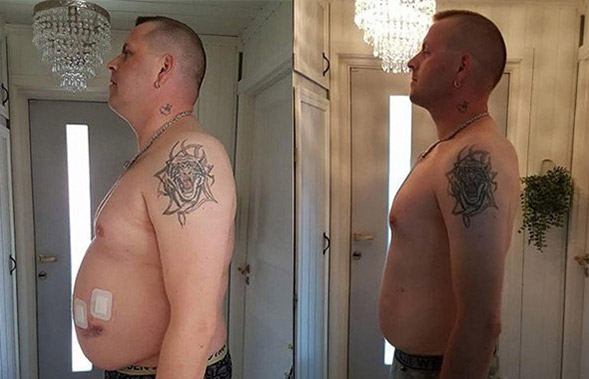
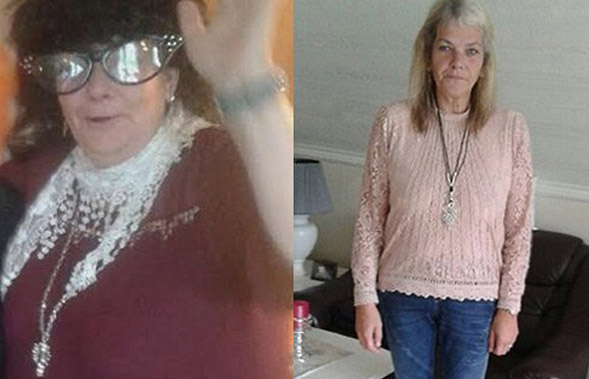
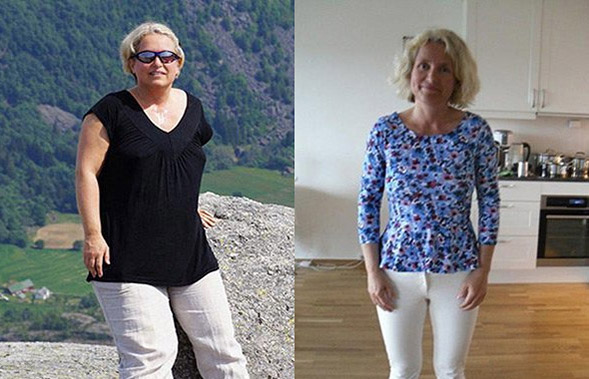



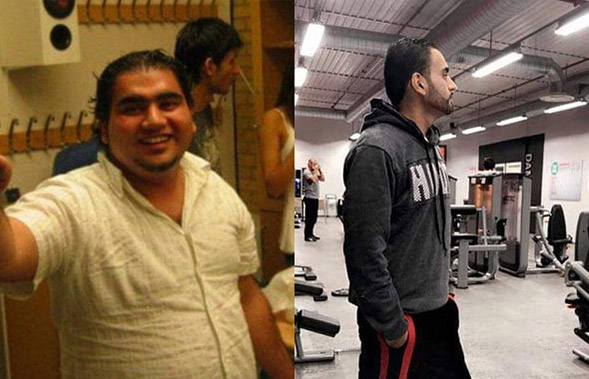

 I am a 26 year old girl from Trondheim. Throughout my life, I’ve struggled with extra weight/being obese. It’s something that has affected me both physically and psychologically.
I am a 26 year old girl from Trondheim. Throughout my life, I’ve struggled with extra weight/being obese. It’s something that has affected me both physically and psychologically. 